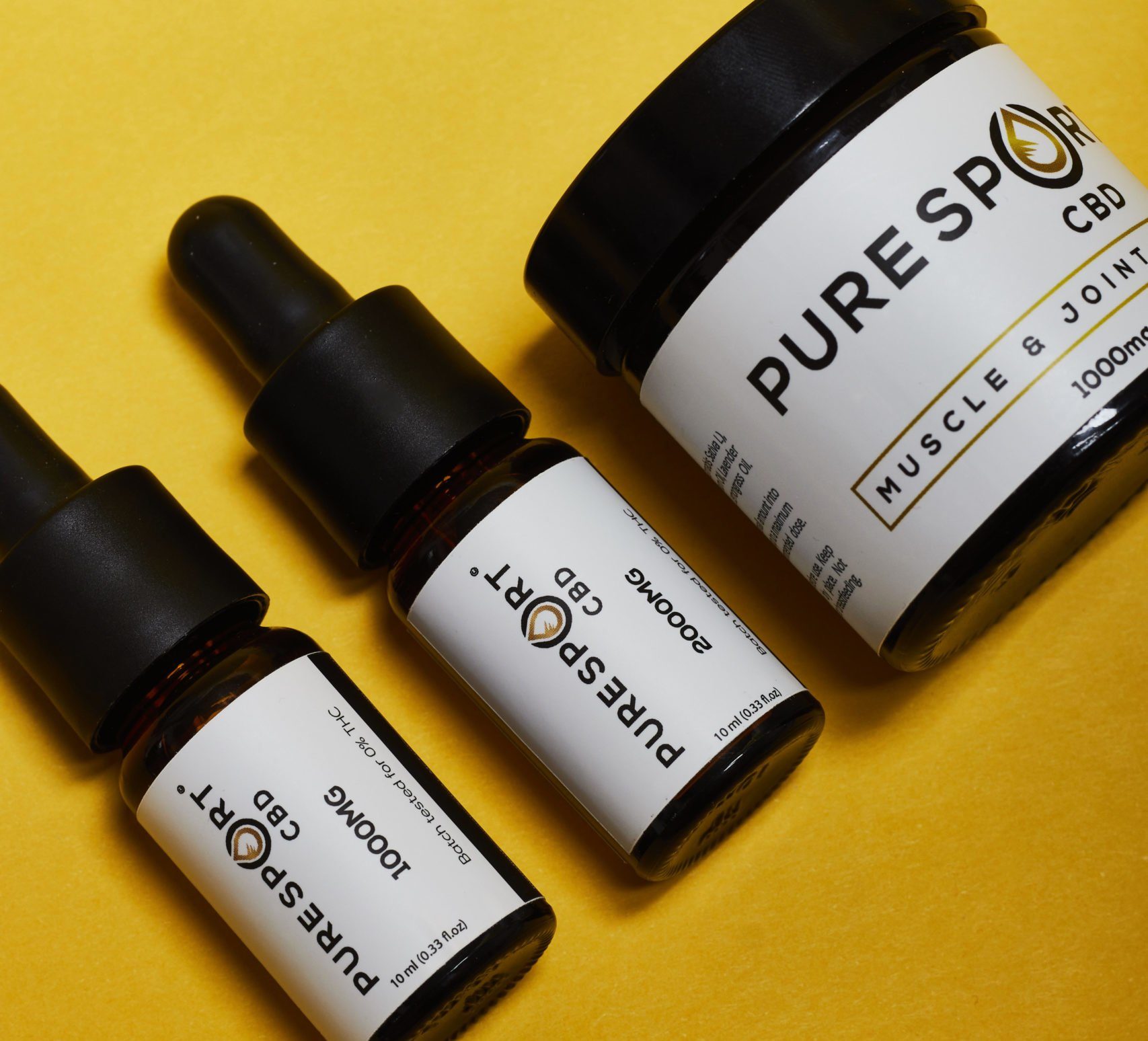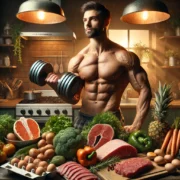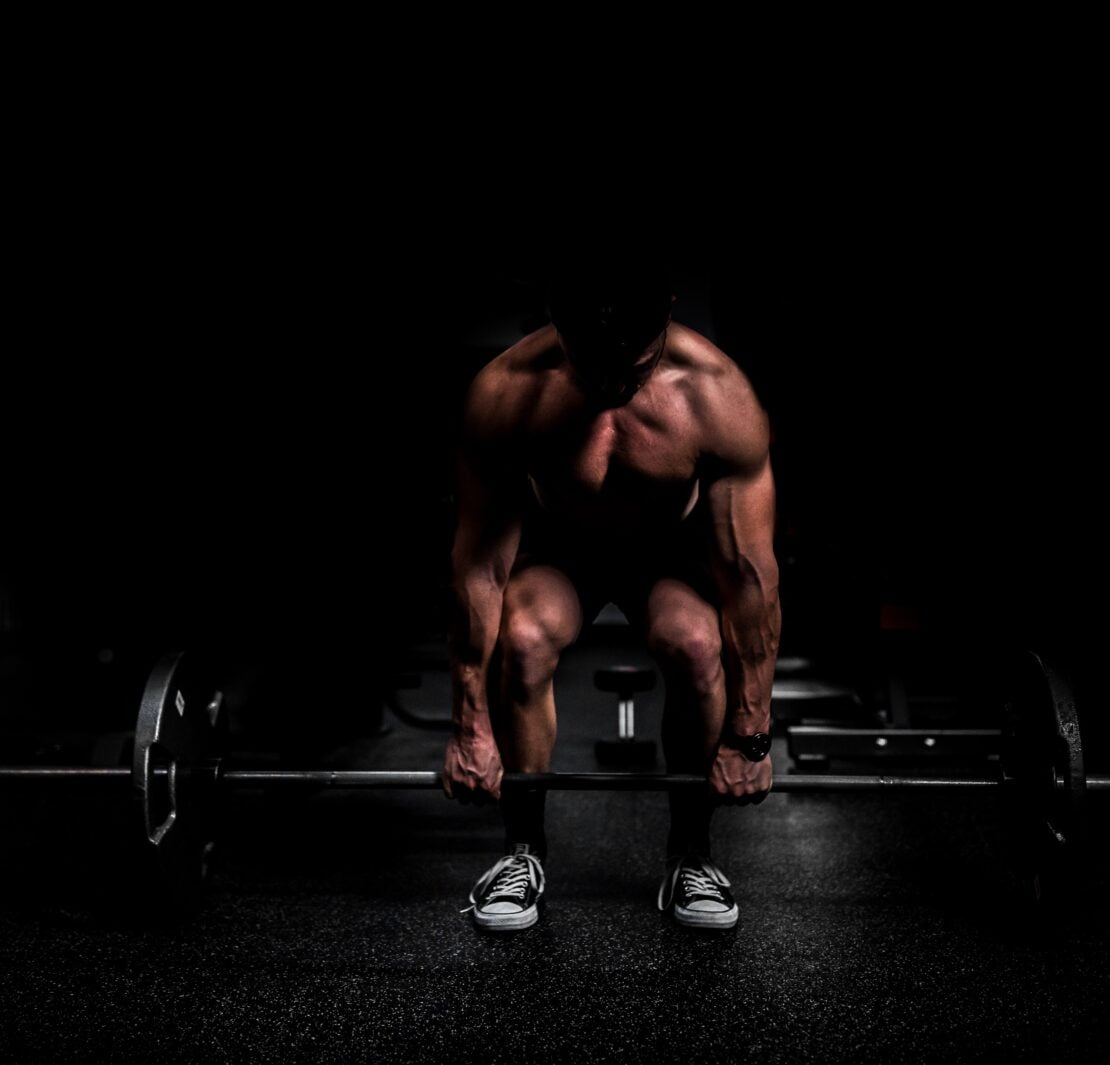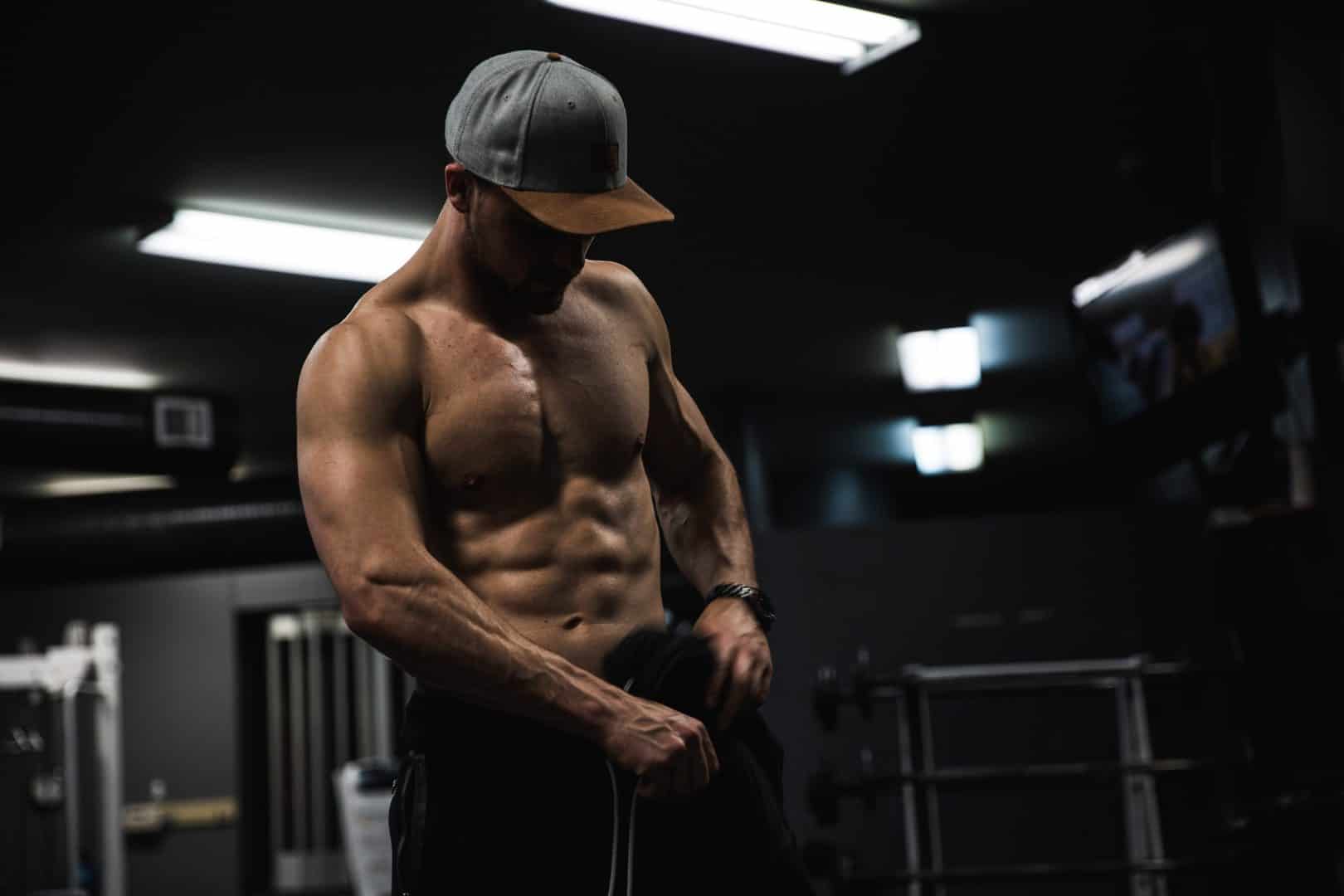There are many reasons why people go vegan. It can be to prevent the exploitation of animals, or simply because people want to be healthy.
No matter the reason, going vegan can help you explore new recipes and acquire tastes you never even thought existed before.
If you are a bodybuilder, it is understandable how you might be reluctant to embrace this new life.
There is a common misconception that bodybuilders cannot go vegan because of the proteins and other nutrients they can only find in meat.
Bu, is this claim true?
Can veganism and bodybuilding work together? What are the advantages and disadvantages of consuming a plant-based diet while you build muscles?
If all of these questions are revolving around your head, this article is for you! Keep reading below to find all the answers.
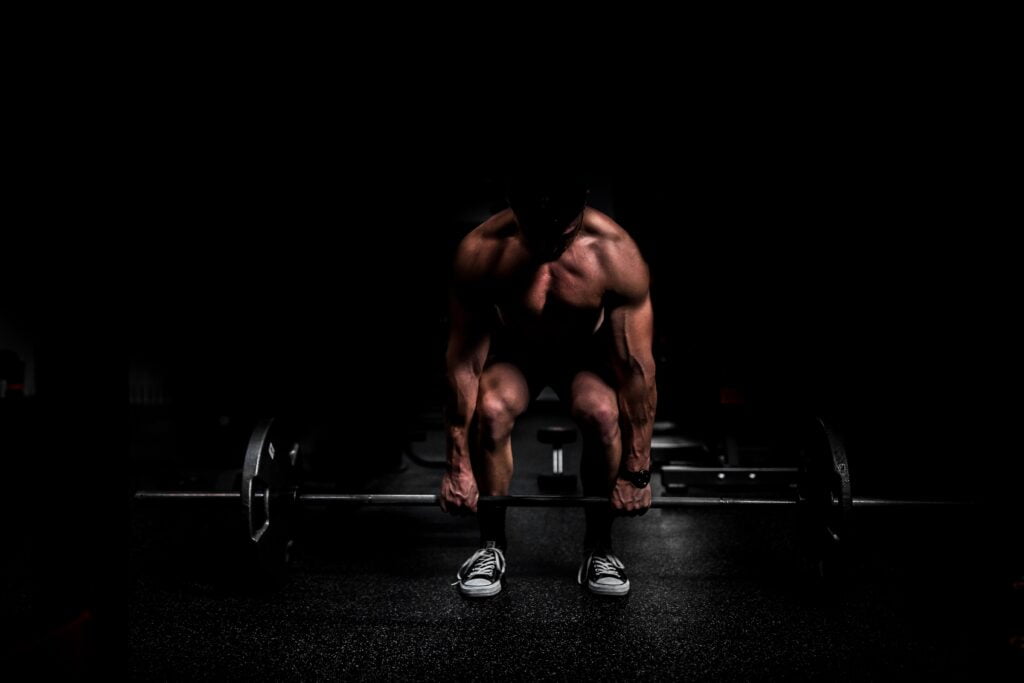
Can You Be Vegan and a Bodybuilder?
Well, as surprising as it might sound, vegan bodybuilding is not an oxymoron.
It can be difficult to understand how a bodybuilder; someone whose goal is to make muscles and needs a nutritious diet, can consume a plant-based diet and have as much energy and muscle as they might like to have with their meat-based exercise regimen.
As a whole, a bodybuilder requires a combination of strength training and a good diet so that they can simultaneously lose fat and put-on muscle.
While there is no denying the fact that following veganism can be challenging, especially if you regularly workout, but it is not impossible.
Yes, you might have to avoid some of the common protein sources, such as dairy products and meat but you can find many alternatives in the forms of fruits and vegetables.
According to research, a vegetarian diet might possess more advantages as compared to an omnivorous diet. The former potentially improves endurance performance as compared to the latter.
Furthermore, the former is high in fibre, so it helps to control your appetite as well as blood sugar.
Overall, the answer to the question is yes, you can be vegan and a bodybuilder. How? Let’s discuss it in detail.
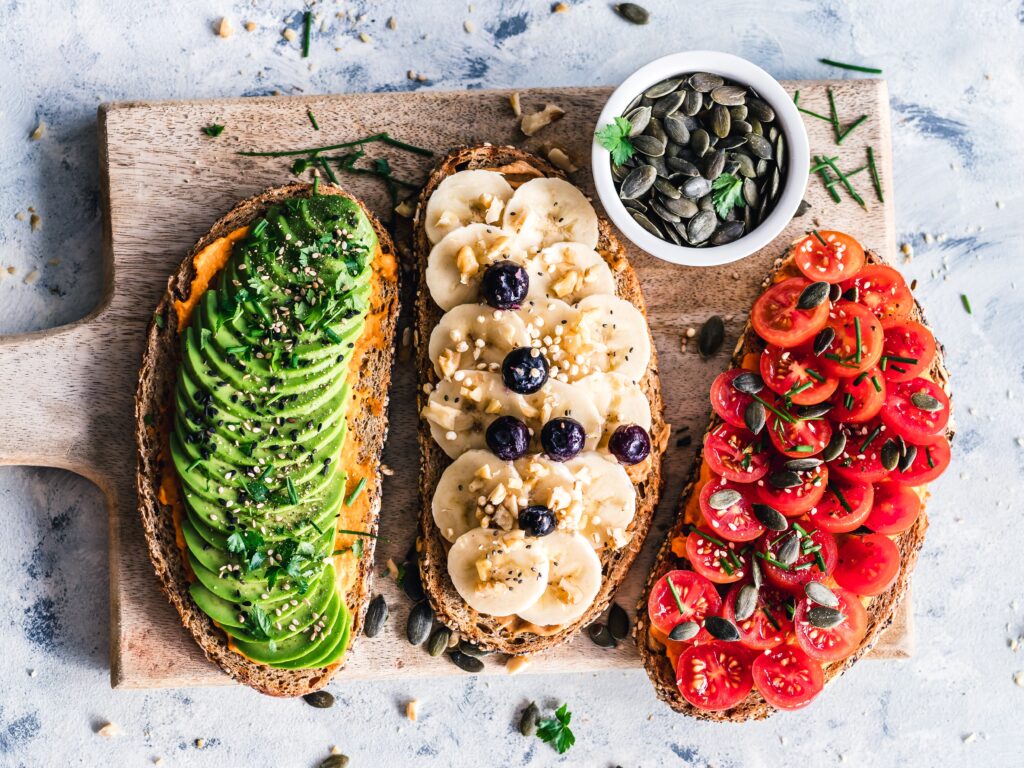
What Does a Vegan Diet Look Like for Bodybuilders?
Bodybuilders try to increase their strength by engaging in intense resistance training. And one of the main factors that help them achieve their goal is nutrition.
Nutrition is important in the process of muscle growth. Naturally, protein consumption should be roughly 0.7-1.0 grams per pound (1.6-2.2 grams per kg) of body weight per day for optimum muscle building to occur.
Moreover, a calorie surplus of 10-20% is advantageous for muscle mass growth, particularly for people who are not new to training. Because of their high protein and calorie content, traditional bodybuilding diets incorporate a lot of animal-based foods.
On the other hand, vegan bodybuilding diet excludes all animal products and contains more protein than standard vegan diets.
As already mentioned, you need protein to build muscles and you can easily get it from several vegan items. For example, beans and lentils can be a source of protein. Furthermore, vegan meat items and soy-based meals are just as good. Some vegan meats contain 20 grams of protein in one patty which is more than what you get from a typical meat patty (15 grams).
Still, there is no hiding the fact that bodybuilders will find it hard to follow veganism. One of the main reasons is that while vegan diets may be high in protein, they mostly have low-quality proteins as compared to animal-based proteins.
The reason is that not all types of plant proteins can give you an adequate quantity of essential amino acids.
Furthermore, a few vegan items contain components such as tannins, saponins, and phytates that interfere with the absorption of proteins.
Coming back to our initial stance; this does not necessarily mean you cannot get the same nutrients from plants as you might get from animals.
It just indicates that you might need different quantities of each since their content is so different.
The Benefits of a Vegan Diet for Bodybuilders
While it might have its shortcomings, there are numerous benefits that a vegan diet has for bodybuilders.
If you are thinking of transitioning and still haven’t been able to make up your mind, the following description might help you.
Contains Different Types of Protein Sources
While we have talked about how plant-based proteins have a lower quality as compared to animal-based proteins, they certainly contain a far wider and better variety of protein sources.
For example, whole grains, pulses, seeds, soy, and nuts are all plant-based proteins. Furthermore, they’ll allow you to try more amino acids and find the right balance for each. Besides, all of them are great for carrying around in your bag or purse. Just throw a bunch of nuts and seeds in a Ziplock bag and you are good to go.
Adds variety to your meals
Using meat substitutes will help you innovate your regular vegan meals. The substitutes resemble the texture and flavour of meat, so you do not have to give up on the delicious taste.
Moreover, you can try out the same recipes without making any adverse change.
There are many soy-based types of meat that you will find in the market. For example, tofu, vegetable protein, seitan, mycoprotein, and tempeh, all of them give you a delicious meaty taste.
It is, however, important to bear in mind that some meat alternatives, such as burgers or sausages, may be higher in sodium (salt) and saturated fats.
Moreover, they contain fewer health-promoting elements, such as antioxidants and fibre.
As a result, they should be consumed in moderation as a part of a healthy and balanced diet.
When selecting these items, study the labels and search for more nutritionally balanced selections.
Keeps the Risk of Heart Diseases Low
According to research, vegans considerably decrease their risk of a heart disease. It may be because of lower intake of saturated fats and cholesterol, or a higher intake of fibre and different plant-based components.
Vegans historically have lower blood pressure and levels of total and LDL (bad) cholesterol than people who do not follow the same regime.
Furthermore, the vegan bodybuilding diet is abundant in fruits and vegetables, which are high in dietary fibre.
As stated by experts, a high-fibre diet has been linked to a decreased risk of heart disease and stroke.
Potentially Protects Against Certain Types of Cancers
A vegan diet is linked to a lower risk of different forms of cancer when compared to the standard Western diet.
The benefit is most likely owing to the vegan diet’s increased fruit, vegetable, and legume intake. It results in a greater intake of fibre, phytonutrients, and micronutrients.
A vegan diet has also been linked to a lower BMI, so you have a reduced risk factor for some cancers.
Lastly, eating more soy, which is common among vegans, has been linked to a lower risk of breast cancer in women.
Whereas red meat intake can cause colorectal cancer. So, when you start following a vegan diet, the risk minimizes.
Promotes Healthy Body Weight
Vegans often have a lower body mass index (BMI) compared to those who follow a regular Western diet. The former is known for lowering the risk of various diseases.
A 16-week research was conducted to examine the impact of a vegan diet on 75 overweight persons.
It was discovered that a vegan diet was more successful than a controlled diet for improving fat mass, body weight, and insulin resistance markers.
Vegan Meal Guide for Bodybuilders
What can you eat and the most important what you cannot eat when you are following a vegan meal plan and actively working out?
Well, here are some of the best foods to eat and this is why you should eat them.
- Legumes and Beans: They provide protein as well as fibre. For instance, you can eat chickpeas, black beans, peanuts, green peas, navy beans, kidney beans, and other similar items.
- Seeds: Some types of seeds are good sources of protein as well as omega-3 fatty acids. For example, flax, hemp, chia, and sunflower seeds are the best when it comes to nutrition and will definitely help you maintain a healthy weight.
- Quinoa: The pseudo-grain is packed with different nutrients as well as antioxidants. Furthermore, it is higher in fibre than many other types of grains. It is gluten-free and ideal for people who suffer from gluten intolerance. Lastly, it is jam-packed with proteins; 18 grams of cooked quinoa contains 4.4 grams of protein.
- Amaranth: Amaranth is an underrated superfood that bodybuilders should include in their diets. It has protein and various antioxidants, such as vanillic and gallic acids. Antioxidants battle free radicals, which have harmful consequences of regular cellular activity. Furthermore, it can help prevent anything from wrinkles to heart disease.
- Meat Substitutes: You can either make it at home or buy it at your grocery store. They can serve as your main source of protein so you need to search for them and find the ones that work best for you. Some types of vegetarian meat substitutes include black beans, chickpeas, seitan, tofu, lentils, and jackfruit.
- Soy Products: A lot of products mentioned in this list overlap. For example, tofu is a soy product. Other types of soy products include tempeh, soy milk, edamame, and lastly, soy protein. All of them are rich in omega-3 fatty acids which are essential for your cardiovascular health. Moreover, it contains vitamins, minerals, zinc, iron, and various other antioxidants.
- Spirulina: It is blue-green algae that many vegans try out because of the number of proteins it provides. Apart from that, it is also a great source of minerals and vitamins.
- Calcium-fortified plant-based dairy items: When you let go of the animal-based diet, it means you will also stop consuming dairy which is an important part of your diet. Luckily, there are many plant-based and soy milk and yogurt items in the market. They will give you just as much calcium and vitamin D as animal-based products provide.
- Nutritional Yeast: Nutritional yeast is the deactivated form of yeast, which implies that the yeast cells are terminated during processing and they are, therefore, inactive in the finished product. They have a cheesy, savoury, and nutty flavour. It’s a popular vegan cheese alternative. You can find nutritional yeast in powder or flake form.
- Oats: Oatmeal and oats have high protein content per serving, in addition to some fibre; so, you should definitely try them out.
- Protein Powders: There are many vegan counterparts that you can find in the market. Usually, there are many different types of protein-rich foods like hemp, brown rice, and peas.
- Sprouted Grain Breads: They are ideal for protein and complex carbohydrate requirements.
- Nuts and Nut Butters: When paired with other complementary proteins, they can provide a rich supply of protein. You can also get a few healthy fats from nuts and nut butters.
- Vegan Dark Chocolate: Just because you have to opt for a healthier lifestyle does not mean you have to let go of “small pockets of happiness.” Many types of vegan chocolates are available in the market and they are probably healthier than the original ones. Most vegan chocolates are high in antioxidants, vitamins, and minerals.
- Tahini: This sesame seed paste has a considerable quantity of fat and a little bit of protein per serving. Overall, it is a pretty good dip sauce; you can dip your veggies in it, spread it on a piece of bread, or use it as a salad dressing, so the possibilities are endless.
How to Overcome Difficulties with Switching to a Vegan Diet?
Here are some ways you can overcome the difficulties of switching to a vegan diet:
Have Discipline
If you are switching your diet for the first time, it is probably going to be hard for you to keep on track.
However, one thing that would help you, in the long run, is your discipline. Motivation wavers as time goes by and your situation changes, but if you have discipline, you can achieve anything your heart desires.
Do not force the process
Transitioning is an entire process, and you should not force it on yourself. Before even starting, make sure you do as much research about veganism and how it will impact your bodybuilding lifestyle.
Research as Much as You Can
Learn about the benefits of this new lifestyle and then make sure to search in detail all the pain points you might incur while transitioning.
Read Ingredients of Food Items
Start reading the ingredients list of all food items you purchase. This way, you will be able to familiarize yourself with what is animal-derived and what is plant-derived.
Add to Your Diet and Then Subtract from It
Moreover, one of the greatest tips of all times is that you should add to your diet before you start subtracting from it.
This means that if you are a first timer, you should start taking bigger portions of whole grain, nuts, legumes, seeds, and beans in your diet and slowly yet steadily decrease the amount of meat and other animal-based foods.
Experiment with Vegan Recipes
You should start collecting and experimenting with different vegan recipes, so that you can find out the ingredients that work best for you.
Start Transitioning by Switching Dairy Products
Moreover, a few people suggest that you should start transitioning by switching milk with any non-dairy alternative. It is the easiest transition, and most people might not even notice a significant difference in their diet.
No matter which method you try out, make sure to take things slow and have patience. You won’t be able to love all the vegan food out in the market, but you will surely find some that you love to cook and eat.
So, just keep looking for options and don’t lose hope.
Are Vegan Builders Stronger?
Vegan bodybuilders can have tremendous muscles, a powerful physique, and competition-level form. In many situations, they outperform their meat-loving colleagues.
Which athlete gets greater outcomes is partly subjective; it also relies on your ambitions. If all you desire is the membership of the bodybuilding community and superhuman gains, it’s usually drugs, not meat that will set you apart from the competition.
Meat is not a magical ingredient for bodybuilders’ success. Vegans can consume enough protein and other nutrients to bulk up and compete.
There is also no contest when it comes to health and fitness outside bodybuilding. Vegan bodybuilders have higher general health, quality of life, and longevity.
Summary
To answer the question given in the beginning, yes, veganism and bodybuilding can work together. Many plant-based foods ingredients provide you with just as many if not more nutrients as animal-based products do.
But one of the major challenges that most beginner-level vegans face is transitioning, so if you are trying out this new dietary regimen for the first time, you need to slowly step into it.
Start by incorporating plant-based ingredients into your normal diet. Then, increase their portion while simultaneously decreasing the portions of animal-based foods. Feel free to consult your dietician and doctor first.
Keep trying and you will slowly, smoothly, and gracefully transform yourself into a vegan bodybuilder.
